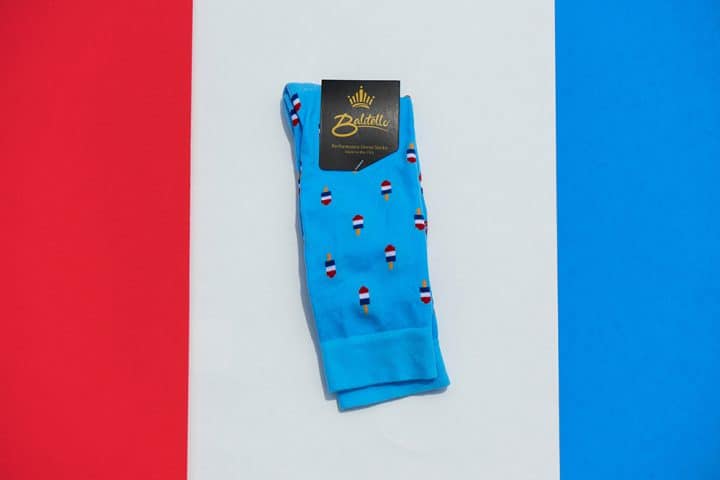One of the main challenges businesses face is to find effective strategies to stand out from the crowd. In a saturated, competitive market, you need to be able to reach your target audience effectively. So, how do you differentiate your brand, what is your unique selling proposition and how to communicate these marketing messages?
Marketing experts have long been aware of the power of connecting with the right audience. Segmenting the market to find the right niche is the first step while understanding the target customer on a deeper and more personal level so you can cater to their exact needs is the second step.
So, what is niche marketing?
In contrast to a blunt, generalist approach to marketing, niche marketing zooms in on a specific subset of the overall audience: a niche. Instead of trying to market to everyone who could possibly benefit from your product or service, a better strategy is to target one carefully chosen group or demographic of potential customers who you believe will benefit most from your offering.
You can choose your niche according to gender or age, profession or occasion, location or lifestyle, behaviour or culture, need or habit – it doesn’t really matter as long as your criteria allow your brand to differentiate itself from all the others out there, so your company appears as a unique authority that resonates with a distinct subset of customers whose needs you seek to meet.
Rather than getting lost in a sea of similar products or services, niche marketing can be employed to achieve the following goals:
- Stand out from the competition
- Offer more value to your customers
- Create more authentic, long-term customer relationships
- Reach your business growth potential
3 examples of successful niche marketing
This is all very well in theory but how does niche marketing work in real life? Let’s take a look at three examples of current retailers that are active both online and offline to illustrate how businesses have identified micromarketing opportunities and made a success of catering to their carefully targeted niche.
- Childsplay Clothing
From London store to global online presence, Childsplay Clothing is a leading independent children’s clothing retailer with an exclusive selection of luxurious childrenswear from the world’s leading designer brands including Balenciaga, Dolce & Gabbana, Gucci, Stella McCartney and Versace alongside freshly discovered labels. Billed as “the ultimate fashion experience”, their product range of high-end designer wear from newborn to 16+ aims to “express your little one’s individuality and style as they grow.”


Source: Childsplay Clothing
- Lefty’s
With nine in ten people being right-handed, the world of product design takes its cue from the majority. But what if you’re left-handed? From scissors to tin openers, computer accessories to garden tools, this San Francisco based store quickly took advantage to the obvious commercial opportunity presented by catering exclusively to the 10% minority. Lefty’s is a left-handed retail specialist with an obvious brand concept that needs no further explanation.


Source: Lefty’s Left Hand Store
- LUSH
Fun, colourful cosmetics brand LUSH believes in “making effective products from fresh, organic fruit and vegetables, the finest essential oils and safe synthetics.” A strong advocate for ethical buying and pure, handmade products, their points of differentiation include embracing eco-friendly packaging and rejecting animal testing. The company’s core values of honesty and integrity and a niche focusing on how their definition of beauty has brought them many loyal followers.


Source: Lush
How do you define the right niche market?
As the above real-life examples illustrate beautifully, the most successful (and therefore lucrative) niche markets are those that solve a problem or share a passion. Start by looking for easily recognisable mini markets within your existing customer base, and ask the following questions:
- What are your customers buying, and with which frequency? Do your existing products meet their needs exactly, roughly or not really?
- Where demands are not being met, could this be a profitable opportunity for you to specialise in? If so, you may have found your niche.
- Look for opportunities to replicate and/or adapt your product offerings across different demographics, e.g. age, gender, professions, cultures.
- Don’t forget to check what your competitors’ customers are doing. Perhaps there are gaps in the market there that you can capitalise on?
What are the advantages of niche marketing?
One of the greatest benefits of niche marketing done right is that the loyal clientele you have built will be less price sensitive, meaning you can charge more. Having found the perfect solution for their shopping needs and developed a strong trust in your brand means your target customers will be prepared to pay a premium for getting exactly what they want.
The most successful niche marketing strategies involve a clearly defined and easy to identify group of customers who share a unique passion or pain point (e.g. uber fashion conscious offspring, or failing to find products designed for left handers) that you can turn to your commercial advantage.
Once a niche has been defined, highly personalised marketing messages and CTAs targeted with pinpoint precision will not only create a deeper and more emotional connection with your customers, it should quickly convert into business profit.
Plus, with increasingly easier access to data management and automation technology, niche marketing has the potential to get ever cleverer. Ensure that you collect demographic data and create accurate customer profiles, tweaking and re-tweaking your marketing campaigns in an effort to get ever closer to the needs of your target market. It’s not the size of the marketing budget, it’s what you do with it.






